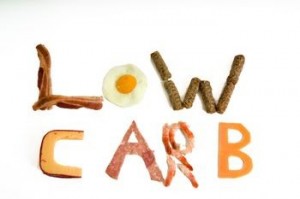Dr. Weeks’ Comment: Not all calories are the same. Still today, despite research like the June 2011 report below, patients are told to eat anything when they have cancer “Keep your calories up” and cookies, candy and brownies are offered in chemotherapy clinics. After learning about how happy sugar makes cancer cells, you make change your eating habits – even if it is “against medical advice”.
“….This shows that something as simple as a change in diet can have an impact on cancer risk…”
and the normal American diet “Western diet” kills mice!
“….Almost half of the mice on the Western diet developed breast cancer within their first year of life, while none on the Low-Carb/High-Protein Diet did…”
The study was conducted in mice, but the scientists involved and independent observers say the findings are definitive enough that similar effects in humans, though unproven, seem plausible.
Most human population studies link traditional diets high in fruits and vegetables but low in sugars and starches – such as age-old, fast-disappearing “Mediterranean” diets – to lower cancer risks overall (Key TJ et al. 2004).
As the authors of a 2005 review wrote, “We recommend the adoption of dietary patterns emphasizing regular physical activity, fruits and vegetables, whole grains, legumes, nuts, seeds, and low-fat dairy products to all people at risk for cancer … These recommendations may be incorporated into enjoyable cultural food patterns as exemplified by Mediterranean-type diets.” (Williams MT, Hord NG 2005)
|
Protein and polyphenols for immune health
You’ll find more information about the potential anti-cancer effects of plant foods rich in polyphenols in the “Foods & Immune Health” section of our news archive.
For more about the health impacts of protein-rich diets, see these past reports:
|
The authors of the new mouse study put it pointedly, saying, “This shows that something as simple as a change in diet can have an impact on cancer risk,” said lead researcher Gerald Krystal, Ph.D., of the British Columbia Cancer Research Centre (AACR 2011).
Mouse study links cancer to standard, high-carb American diet
Dr. Krystal and his colleagues implanted various strains of mice with human tumor cells or with mouse tumor cells and assigned them to one of two diets, proving the three essential “macronutrients” in specific proportions (Krystal G et al. 2011):
-
Western-Style Diet – about 55 percent carbohydrates, 23 percent protein, and 22 percent fat.
-
Low-Carb/High-Protein Diet – about 15 percent carbohydrates, 58 percent protein, and 26 percent fat.
The researchers characterized the Low-Carb/High-Protein Diet as resembling the ones advised in the bestselling Perricone Prescription and South Beach Diet books.
This comparison holds in terms of the proportions of the three macronutrients, if not with regard to the primary protein source that both diets’ authors recommend … seafood and its accompanying omega-3 fats, rather than poultry and red meats.
The results were consistent and showed that the tumor cells grew slower in mice placed on the Low-Carb/High-Protein Diet.
Second study links low-carbohydrate, high-protein diet to reduced breast risk
In a separate study by Krystal’s team, mice genetically predisposed to breast cancer were put on these two diets.
-
American Association for Cancer Research (AACR). Low-Carbohydrate, High-Protein Diets May Reduce Both Tumor Growth Rates and Cancer Risk. June 14, 2011. Accessed at http://www.aacr.org/home/public–media/aacr-in-the-news.aspx?d=2396
-
Kontou N, Psaltopoulou T, Panagiotakos D, Dimopoulos MA, Linos A. The Mediterranean Diet in Cancer Prevention: A Review. J Med Food. 2011 Jun 11. [Epub ahead of print]
-
Krystal G et al. A Low Carbohydrate, High Protein Diet Slows Tumor Growth and Prevents Cancer Initiation. Cancer Res. June 14, 2011; Published Online First June 14, 2011; doi:10.1158/0008-5472.CAN-10-3973. Accessed at http://cancerres.aacrjournals.org/content/early/2011/06/10/0008-5472.CAN-10-3973.abstract
|

